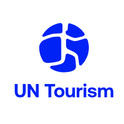World Forum on Gastronomy Tourism to Analyse the Sector’s Potential as a Source of Jobs, Entrepreneurship and Innovation

- International experts will gather at the Forum, which will feature presentations and master classes as participants share knowledge and best practices.
- The event will also host the final stage of First Global Gastronomy Tourism Startup Competition, whose winner will be decided.
Madrid / San Sebastián, Spain - The countdown begins for the 5th World Forum on Gastronomy Tourism to be held on 2 and 3 May in Donostia-San Sebastián, organized by the World Tourism Organization (UNWTO) and the Basque Culinary Center (BCC). International experts will analyse and discuss the influence and capacity of gastronomy tourism to create employment and promote entrepreneurship and how to increase its potential in the future. Registration to attend the forum is still open here.
Stimulating employment
The Forum will explore how the most favourable frameworks can be created in order to stimulate job creation and entrepreneurship throughout the gastronomy tourism value chain. In addition, the speakers will try to identify the most relevant skills for this type of tourism, which should foster synergies among emerging companies, promote the inclusion of disadvantaged groups and take full account of digitalization. The event will bring together speakers and experts from all regions of the world, as well as internationally renowned Basque chefs such as Elena Arzak, who is a UNWTO Ambassador for Responsible Tourism and joint head chef of the restaurant Arzak, and Andoni Luis Aduriz.
In addition, the event will host the presentation of the UNWTO/BCC Guidelines for the Development of Gastronomy Tourism.
Sessions and startups
The forum will open with a high-level panel with ministers and secretaries of state from countries that have included gastronomy tourism as part of their strategies, such as Cyprus, Slovenia or Spain, among others. Under the theme, "Public policies as key ingredients to promote gastronomy tourism", the participants will discuss the necessary political framework for the development of gastronomy tourism as well as its capacity to create jobs and promote entrepreneurship.
In addition to shedding light on the competencies needed to meet the demands of gastronomy tourists, the sessions will encourage the creation of environments that stimulate entrepreneurship, that connect emerging companies and better integrate disadvantaged groups in the labour market. Issues related to local communities or to under-represented groups, such as women, youth and persons with disabilities, will also be discussed. In addition, topics such as the digitalization of the sector will also be analysed in order to identify the new opportunities they offer to companies. In addition, the latest advances in the creation of the necessary framework to stimulate entrepreneurship will be presented, connecting the different ecosystems with the startups that are part of the value chain of gastronomy tourism.
In this context, the five finalist startups of the First Global Gastronomy Tourism Startup Competition, organized by the UNWTO and the BCC, will present the most innovative projects in line with the UNWTO's strategy and the contribution of gastronomy tourism to the sustainable development goals.
The programme of the Forum is complemented by nine visits that will allow the participants to take part in different experiences related to gastronomy in the Basque Country.
About UN Tourism
The World Tourism Organization (UN Tourism) is the United Nations agency responsible for the promotion of responsible, sustainable and universally accessible tourism.
As the leading international organization in the field of tourism, UN Tourism promotes tourism as a driver of economic growth, inclusive development and environmental sustainability and offers leadership and support to the sector in advancing knowledge and tourism policies worldwide.
Our Priorities
Mainstreaming tourism in the global agenda: Advocating the value of tourism as a driver of socio-economic growth and development, its inclusion as a priority in national and international policies and the need to create a level playing field for the sector to develop and prosper.
Promoting sustainable tourism development: Supporting sustainable tourism policies and practices: policies which make optimal use of environmental resources, respect the socio-cultural authenticity of host communities and provide socio-economic benefits for all.
Fostering knowledge, education and capacity building: Supporting countries to assess and address their needs in education and training, as well as providing networks for knowledge creation and exchange.
Improving tourism competitiveness: Improving UN Tourism Members' competitiveness through knowledge creation and exchange, human resources development and the promotion of excellence in areas such as policy planning, statistics and market trends, sustainable tourism development, marketing and promotion, product development and risk and crisis management.
Advancing tourism's contribution to poverty reduction and development: Maximizing the contribution of tourism to poverty reduction and achieving the SDGs by making tourism work as a tool for development and promoting the inclusion of tourism in the development agenda.
Building partnerships: Engaging with the private sector, regional and local tourism organizations, academia and research institutions, civil society and the UN system to build a more sustainable, responsible and competitive tourism sector.
Our Structure
Members: An intergovernmental organization, UN Tourism has 160 Member States, 6 Associate Members, 2 Observers and over 500 Affiliate Members.
Organs: The General Assembly is the supreme organ of the Organization. The Executive Council take all measures, in consultation with the Secretary-General, for the implementation of the decisions and recommendations of the General Assembly and reports to the Assembly.
Secretariat: UN Tourism headquarters are based in Madrid, Spain. The Secretariat is led by the Secretary-General and organized into departments covering issues such as sustainability, education, tourism trends and marketing, sustainable development, statistics and the Tourism Satellite Account (TSA), destination management, ethics and risk and crisis management. The Technical Cooperation and Silk Road Department carries out development projects in over 100 countries worldwide, while the Regional Departments for Africa, the Americas, Asia and the Pacific, Europe and the Middle East serve as the link between UN Tourism and its 160 Member States. The Affiliate Members Department represents UN Tourism's 500 plus Affiliate members.
UNWTO Communications Department
+34 91 567 8100
UN Tourism
